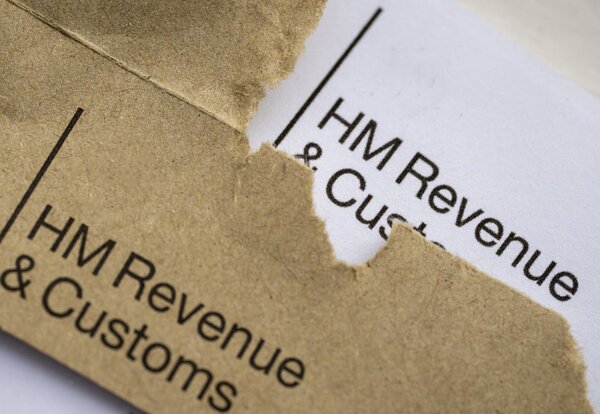Lets get into the nitty gritty shall we?
Here's something that might surprise you - 1 in 4 families who could claim Child Tax Credits don't even apply because they think they won't qualify. I see this all the time when helping families with their tax situations.
The truth is, eligibility isn't as cut-and-dried as people think. You might earn more than you expect and still get support, or have circumstances that actually help rather than hinder your claim.
Let me walk you through the real requirements so you can figure out if your family's missing out on money you're actually entitled to.
What Does "Am I Entitled to Child Tax Credits" Actually Mean?
When you're asking if you're entitled to Child Tax Credits, you're basically checking if your family ticks the government's boxes for this support. It's not just "do I have kids?" there are specific rules about age, income, and your situation.
I made this mistake myself years ago, assuming I didn't qualify because I worked full-time. Turns out Child Tax Credits are specifically designed for working families! The clue's literally in the name.
Your entitlement comes down to three main areas: your children's circumstances, your income level, and your residency status. Get these right, and you could be looking at thousands of pounds annually.

The Basic Requirements: Children and Age Limits
You need to be responsible for at least one child who's either under 16, or under 20 and in approved education. "Responsible for" is broader than just being the biological parent - it includes guardians, kinship carers, and some foster arrangements.
Here's what counts for the age requirements:
• Under 16 on 31st August (regardless of when they turn 16 during the year)
• 16-19 and in full-time education or approved training
• Still at school, college, sixth form, or doing A-levels
• University students under 20 (this one surprises people)
The education bit can be a lifesaver. My neighbor thought her support would stop when her daughter turned 16, but because she was doing A-levels, the payments continued for another two years.
Income Rules: It's Not What You Think
This is where people get it completely wrong. There's no hard income limit where you suddenly don't qualify. Instead, your payments reduce gradually as you earn more, using something called the taper rate.
The magic number is £17,005 - if you earn less than this, you get the maximum amount. Above this, you lose 41p of Child Tax Credits for every extra £1 you earn. But here's the key - you don't lose everything immediately.
I've worked with families earning £35,000 who still get Child Tax Credits because they have multiple children. The calculations often surprise people.
Quick income examples:
• Earning £20,000 with one child: Still get around £2,650 per year
• Earning £25,000 with two children: Still get around £3,900 per year
• Earning £30,000 with three children: Still get around £2,700 per year

What Income Actually Counts (And What Doesn't)
Here's something that caught me off guard when I first learned about this - not all money coming into your household counts as "income" for Child Tax Credits.
Income that counts: • Your salary or wages from employment • Profits from self-employment (not turnover) • Pension payments • Rental income from properties • Interest from savings and investments
Income that doesn't count: • Child maintenance from your ex-partner • Child Benefit payments • Disability Living Allowance • Housing Benefit • Council Tax Support
That child maintenance exemption is huge for single parents. I know someone who was worried her ex's payments would affect her credits - they don't at all.
Special Circumstances That Affect Entitlement
Some situations make your entitlement more complex, but often in a good way. Families with disabled children can claim additional amounts if the child receives Disability Living Allowance or Personal Independence Payment.
If you're separated and share custody, only one parent can claim Child Tax Credits for each child. Usually it's whoever the child lives with most, but you can agree between yourselves. This decision matters because it affects other benefits too.
Foster carers have different rules depending on their arrangement. Kinship carers (looking after family members' children) can often claim, while regular foster carers might not be able to.

The Universal Credit Transition Impact
Here's where it gets confusing. Child Tax Credits officially ended for new claimants in April 2025, but if you were already receiving them, you should have been moved to Universal Credit or Pension Credit.
If you missed the transition deadline, you'll need to claim Universal Credit instead.
The rules are different:
• Different income thresholds
• Higher taper rate (55p instead of 41p)
• Potentially higher overall payments for some families
• More complex application process
I'm seeing families who are better off under Universal Credit, and others who preferred the old system. It really depends on your specific circumstances.
Geographic Variations Across the UK
While Child Tax Credits work the same across the UK, there are extras available in different nations. Scottish families can also claim the Scottish Child Payment - that's an extra £25 per week per child under 16, regardless of your Child Tax Credits entitlement.
Wales has some council-based support that doesn't affect your tax credits. Northern Ireland administers things slightly differently but the entitlement rules are identical.
Don't assume these extras will reduce your Child Tax Credits - they're usually additional support that works alongside your main entitlement.

Quick Self-Check: Are You Likely Entitled?
Let's make this practical. Grab your most recent payslip or P60 and work through this quickly.
If your annual income is under £17,005 and you have at least one qualifying child, you're entitled to the full amount. That's £3,885 for your first child and £3,235 for additional children.
If you earn more, don't give up. Take your income, subtract £17,005, then multiply by 0.41. That's your annual reduction. Subtract this from the maximum amounts above - if there's anything left, you're still entitled.
For example, earning £22,000 with one child: (£22,000 - £17,005) × 0.41 = £2,048 reduction. Maximum £3,885 minus £2,048 = £1,837 you'd still receive annually.
For a complete breakdown of current Child Tax Credit payment rates and amounts, check out our detailed guide on how much Child Tax Credits you can actually get.
When You Definitely Don't Qualify
There are some absolute exclusions worth knowing about. You can't claim if you don't have the right to reside in the UK - this affects some recent immigrants and people with certain visa restrictions.
You also can't claim for children who don't normally live with you. If your child lives with their other parent most of the time, they should be the one claiming.
If your child is 16+ and not in approved education or training, your entitlement stops. This includes young people who are working full-time instead of studying.

Getting Professional Help With Complex Cases
Some situations are genuinely complicated, and it's worth getting advice. If you're self-employed with variable income, have recently separated, or have complex immigration status, consider speaking to an advisor.
Citizens Advice offers free help with benefit entitlement. Your local council might also have welfare rights officers who can check your situation properly.
When we're helping families with their overall tax situation, these benefit interactions often come up. It's surprising how many people are entitled to more support than they realise.
Final Thoughts
The question "am I entitled to Child Tax Credits" usually has a more positive answer than people expect. The income thresholds are more generous than many assume, and there are fewer exclusions than with other benefits.
Don't let assumptions cost your family money. Whether you're earning £18,000 or £35,000, if you have children, it's worth checking your entitlement properly. Even receiving £100 monthly makes a real difference to most family budgets.
The worst that can happen is you find out you don't qualify - but you might discover you're entitled to support you never knew existed.
We make things easy here at Pie. Don't be shy… Get in touch!











